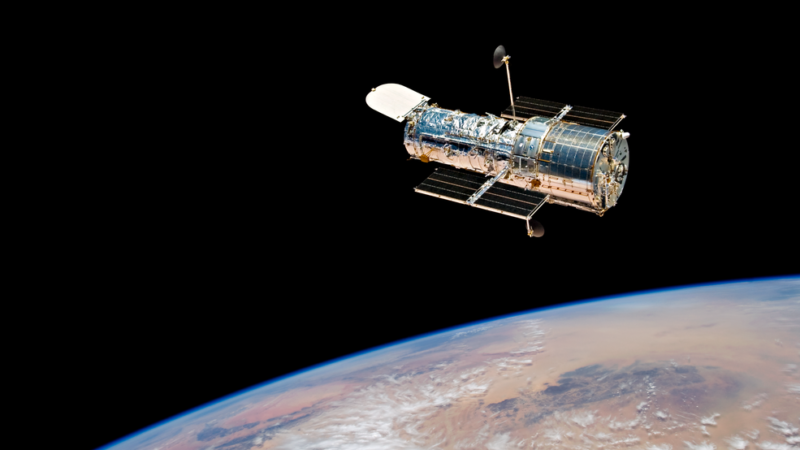Meanwhile, the agency is making plans for updates that would make all instruments less sensitive to failures of the timing signals. But, since it can't figure out the source of the problems, and the problem hasn't recurred recently, it's moving very cautiously.
It’s all in the timing
Each of the Hubble's four major scientific instruments has its own control hardware; to get all of them to play nicely with each other, the telescope uses a synchronization signal to ensure that all activities operate on the same timeline. Late in October, some of these synchronization messages weren't received, which caused the instruments to go into what's called safe mode, meaning they stop collecting data. After the problem recurred, the instruments were left in that mode while controllers tried to discern what was happening.
To do so, they partly reactivated two instruments. This would allow controllers to catch any further instances of dropped synchronization signals, which would help with diagnosing the problem. Fortunately or unfortunately, none of those occurred.
Several days after that, the controllers determined that the instrument that would be least affected by loss of synchronization is the Advanced Camera for Surveys, a refrigerator-sized instrument that's sensitive to wavelengths from the UV down to the near-infrared. That was reactivated on November 8 and has been in operation since. Again, no further synchronization failures have been detected. So, next week, Wide Field Camera 3 is slated to be brought back online as well. The spectrographs should follow later this month.
If problems recur, then there's obviously a chance to fix the underlying problem. But, failing that, the Hubble team is considering altering the instruments' control software to make them less sensitive to failures of the synchronization messages. Obviously, major changes like these need to be vetted carefully, which will take additional time. If everything goes well, the software will allow Hubble to continue doing science even if several synchronization messages fail.
In any case, Hubble is back to doing science, and it may be back to normal operations in the near future. And, even if the underlying problem remains rare enough that it's impossible to diagnose, the telescope should eventually be able to continue operating despite it.



3175x175(CURRENT).thumb.jpg.b05acc060982b36f5891ba728e6d953c.jpg)

Recommended Comments
There are no comments to display.
Join the conversation
You can post now and register later. If you have an account, sign in now to post with your account.
Note: Your post will require moderator approval before it will be visible.